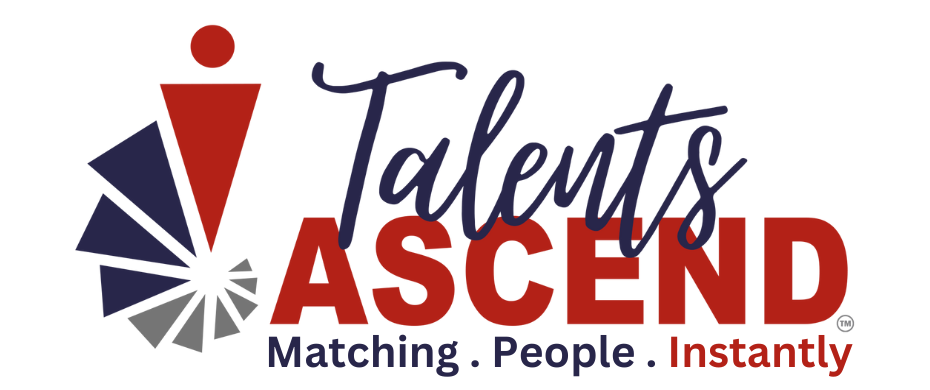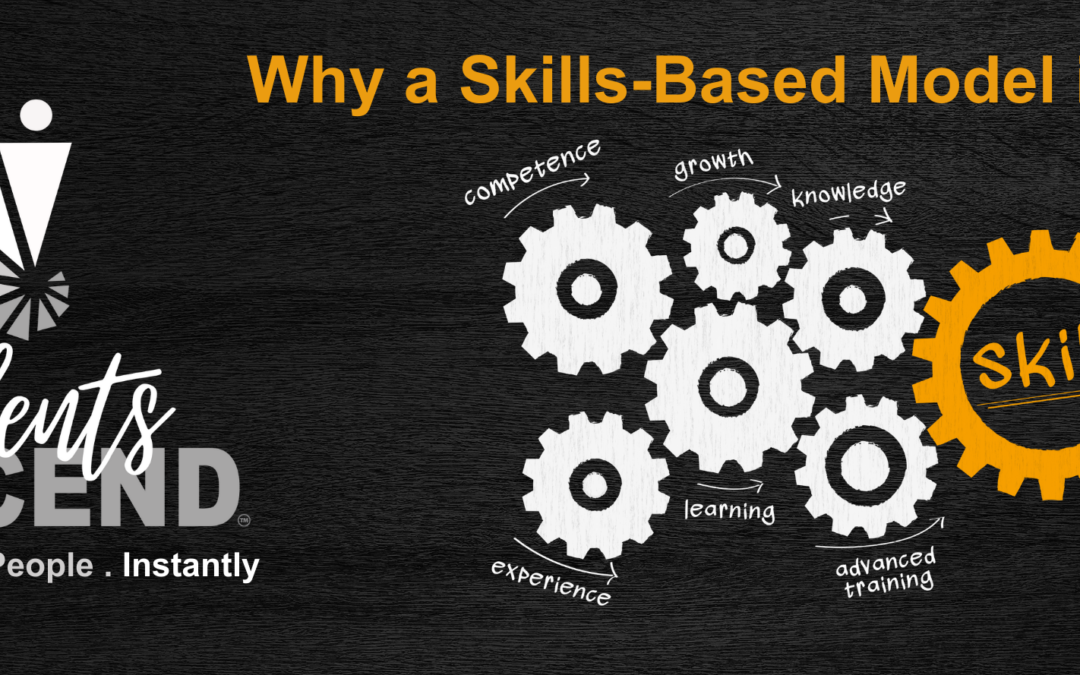Robyn Grable
Founder and CEO of Talents ASCEND
In its list of top workplace predictions for 2023, consultancy firm Gartner said “skills-based hiring rather than degree requirements will dominate at successful companies.”
According to McKinsey, “hiring for skills is five times more predictive of job performance than hiring for education and more than two times more predictive than hiring for work experience.”
The problem for businesses – about 88% of employers admitted in a 2022 survey they were likely filtering out highly skilled candidates because they lacked credentials such as a degree or specific title.
Continuing the obsolete process of favoring resumes that leverage the right keywords, enables applicants to curate a resume, just to get through the filters. It encourages stretching the truth instead of representing ability and competencies. Wasting valuable time because they don’t have the skills for the job.

In a non-skills-based model, hiring managers are expected to focus on applicants that fit within a set of defined tasks and how their past indicates a relevance to a particular task. That relevance relied on education credentials earned, job history and industry experience. This antiquated thinking leaves out those talented candidates who don’t have a degree or who have gained their skills through other avenues or other industries such as the military. What’s important is that they have the skills needed for the tasks of the job.
What skills would you expect a person to have acquired in a certain number of years in an industry? Why is working in the same industry more important than whether or not a person has the exact skills your business needs? Ask yourself, just because a person worked in an industry for years, does that mean they have the skills to be successful in the next career. Wouldn’t you rather be sure?
In a skills-based model, candidates are considered on their capacity to learn, their intrinsic capabilities, and their transferable skills. This is critical for military veterans as they represent a source of labor potential that is untapped. Yet the breadth of experience and depth of skills that they acquire and develop during their service is exactly what every business needs.

Technical training, operating under pressure, cultural adaptability, leadership, and strong interpersonal skills make them well qualified in civilian careers in any industry.
A skills-based model values transferable skills because skills are currency that can be utilized throughout a business. Not just one task at a time. It also answers the age-old question that employers always ask, “How do we accurately translate the skills a military veteran has and relate them to the career positions in our company?” As taxpayers, we all know the DOD spends millions each year to train our military. The training is world-class and results in valuable skills that are highly transferable. Everyone acknowledges that and believes it. Yet, the question remains of how to make the connection? A skills-based model is the answer.
Small businesses can’t often afford to build a military program. What they can successfully build is a skills-based sourcing model through intent to change, recognizing champions within their business, looking at their business needs through a skills perspective, adopting new processes and a commitment to seeing it through. Employee turnover is one of the biggest expenses an organization faces, leaving many to enhance programs focused on employee retention when the problem could be eliminated during the hiring process.
According to new LinkedIn data, employees without a traditional four-year degree stay 34% longer than employees with such a degree. A skills-based model supports a small business’ need to be more agile as time and money are limited and the costs associated with a high rate of turnover can take the business down. Skills-based sourcing eliminates barriers and bias. Skills-based sourcing brings together the right candidate with the right skills for the position and for the business. Knowing the skills your organization needs and looking for those skills, regardless of where, when or how a candidate earned them, exponentially increases the openness to diverse talent.

With a larger set of skills among your employees, you increase opportunities for innovation and creativity. A more diverse workforce increases the potential for greater profitability. By focusing on a candidate’s skills rather than their background, opportunities are created for employees who love what they do and are genuinely capable of doing their job. This leads to an overall boost in productivity and enhanced performance. These employees feel valued and are more likely to be optimistic, motivated, quick to learn, more mindful of mistakes and better decision-makers.
A skills-based model results in a more speedy, efficient hiring process. When recruitment is based on skills, vacancies are filled faster. Costs are reduced. Less turnover. Increased productivity. More profit.
What business, what community, what person wouldn’t benefit from all those outcomes?


